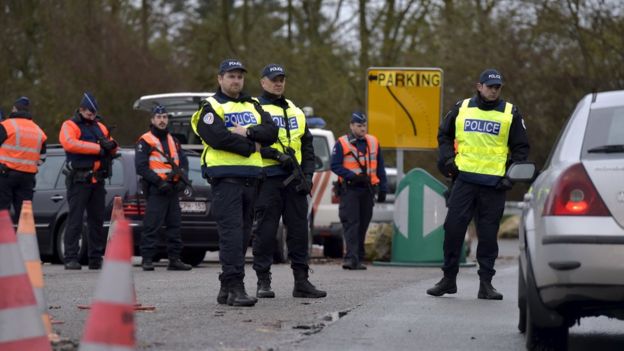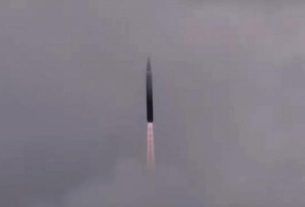The European Union Is Dealing With An Increase In Legal And Illegal Arrivals By Migrants, Prompting Some states to temporarily re-introduce border controls within what is normally a zone of free movement.
The bloc’s Schengen rules allow such action “as a last resort” in cases that are deemed serious threats to internal security or public policy.
These countries have reinstated stricter checks:
Austria introduced checks at its border with the Czech Republic in October, set to last until December 6.
As of November, it extended border controls with Slovenia and Hungary until May 2024, citing pressure on the asylum reception system, threats of arms trafficking, criminal networks linked to the war in Ukraine, and people smuggling.
Denmark in August tightened border control for arrivals, including those from Schengen countries, at Copenhagen airport to boost security after incidents of Koran burnings
It has prolonged checks on the Danish-German land border and in ports with ferry connections to Germany until May 2024, according to an EU Commission report.
The government said it was responding to an increase in irregular migration, and cited threats posed by terrorism and organised crime, foreign intelligence espionage and the war in Ukraine.
Germany announced controls in September on its land borders with Poland, the Czech Republic and Switzerland, set to stay in place until December 4 Berlin said it needed to respond to an immigration surge and high levels of smuggling.
Germany, which has Europe’s biggest economy, has seen a sharp increase in first-time asylum requests this year.
Berlin has also extended land border checks with Austria until May 2024, saying this was in response to what it called a strain on its asylum reception system, security threats linked to Middle East terrorism, and the war in Ukraine.
Italy reinstated police checks at its northeast land border with Slovenia as of Oct. 21, saying some migrants in transit on the Balkan route could be terrorists.
The controls will be in place at least until December 9 Interior Minister Matteo Piantedosi said in October they would likely be extended into next year.
Norway, which belongs to the Schengen arrangement but is not an EU member, reinstated border controls in its ports with ferry connections to the Schengen area as of November 12.
It pointed to threats to its on-shore and off-shore infrastructure, and from foreign intelligence services.
These controls should last until May 5, 2024.
Poland has extended temporary controls on its border with Slovakia until Dec. 3, pointing to migrants’ efforts to illegally enter from there.
The government was rocked by a “visas for cash” scandal earlier this year, when the opposition accused it of being complicit in a system where people received visas at an accelerated pace without proper checks after paying intermediaries.
Sweden strengthened checks in August on its borders, giving border police more power including body searches and increased use of electronic surveillance.
The same month the government raised Sweden’s terrorism threat level, saying it had thwarted attacks after Koran burnings triggered threats from fighters.
As of November, it extended the border checks until May 2024.
France as of November reintroduced controls on its borders with Schengen members, citing what it called terrorism threats. The controls should last until April 30, 2024.
Interior Minister Gerald Darmanin announced reinforced security in October at the Belgian border after the killing of two people by an assailant in Brussels.
Slovakia’s government on Nov. 20 approved keeping temporary controls on its border with Hungary until Dec. 23.
The government is seeking to limit the number of illegal arrivals, having said in November that it detained roughly 500% more migrants who arrived illegally this year compared to 2022.
Slovenia on Nov. 17 extended border controls with Schengen members until Dec. 9, The government cited armed conflict in Ukraine, the Middle East and Africa, and elevated threats from organised crime and terrorism.
It also plans to re-introduce controls on those borders for six months, from Dec. 22.
In October, Slovenia had deployed police on border crossings with Croatia and Hungary.
Tightened borders with non-EU countries
Finland on Nov. 24 temporarily closed all but one of its eight passenger crossings to Russia, after more than 700 migrants arrived at different border stations in the span of two weeks.
Helsinki says Moscow is responsible for transporting the unusually high amount of migrants to its border, which the Kremlin denies.
No reopening date has been announced yet.__Tribune.com





